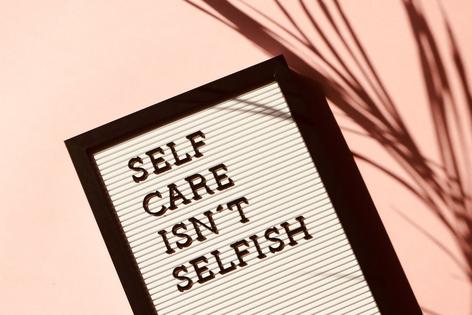Health and Self-Care for Adult Learners: Balancing Wellness and Studies
Published in EDU Advice
Balancing the demands of college while managing work, family, and personal commitments can be overwhelming for adult learners. Amidst the hustle, it's crucial to prioritize your health and well-being. Integrating self-care practices into your routine not only enhances your overall quality of life but also optimizes your academic success. Here are effective strategies to balance wellness and studies as an adult learner.
Prioritize Sleep: Adequate sleep is essential for cognitive function, memory consolidation, and overall well-being. Aim for 7-9 hours of quality sleep per night. Establish a regular sleep schedule, create a comfortable sleep environment, and avoid electronic devices before bedtime.
Nourish Your Body: A balanced diet fuels your body and mind for optimal performance. Consume a variety of nutrient-rich foods, including whole grains, lean proteins, fruits, vegetables, and healthy fats. Stay hydrated by drinking water throughout the day.
Exercise Regularly: Physical activity not only improves physical health but also boosts mood and cognitive function. Incorporate at least 150 minutes of moderate-intensity exercise, such as brisk walking or jogging, into your weekly routine.
Practice Stress Management: College can be stressful, but effective stress management techniques can mitigate its impact. Engage in relaxation exercises, deep breathing, meditation, or yoga to reduce stress and increase resilience.
Allocate Breaks: Frequent breaks during study sessions enhance focus and prevent burnout. Implement the Pomodoro technique, where you work for 25 minutes and then take a 5-minute break. After completing four cycles, take a longer break of 15-30 minutes.
Set Realistic Goals: Establish achievable goals for your studies. Break larger tasks into smaller, manageable steps to prevent feeling overwhelmed. Celebrate your accomplishments, no matter how small, to boost motivation.
Stay Socially Connected: Maintain connections with family and friends to counteract feelings of isolation. Engage in social activities and seek support from loved ones when needed.
Seek Professional Help: If stress or mental health concerns become overwhelming, don't hesitate to seek professional assistance. College campuses often provide counseling services to support students' emotional well-being.
Practice Mindfulness: Mindfulness involves being present in the moment and can reduce anxiety and improve focus. Incorporate mindfulness techniques into your daily routine, such as mindful breathing or mindful eating.
Engage in Hobbies: Dedicate time to activities you enjoy outside of your studies. Engaging in hobbies provides a break from academic demands and enhances your overall happiness.
Learn to Say No: As an adult learner, your time is valuable. Learn to set boundaries and prioritize your commitments. Politely decline additional responsibilities that may stretch you too thin.
In conclusion, prioritizing your health and well-being is essential for succeeding as an adult learner. By incorporating sleep, nutrition, exercise, stress management, and self-care practices into your routine, you'll find that achieving a balance between your studies and personal well-being becomes not only feasible but also immensely rewarding.
This article was generated by Open AI with human guidance and editing along the way.









Comments